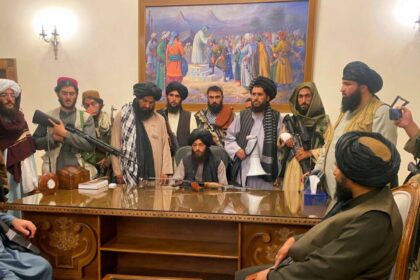RASC News Agency: The Taliban regime has assigned a delegation, led by Abdul Qadir the head of the Taliban-controlled National Statistics and Information Authority to evaluate a proposed national population census and prepare a detailed report. While the Taliban claims this census initiative is a strategic imperative for state-building, critics view it as a thinly veiled effort to manipulate demographics in favor of Pashtun hegemony and institutionalize ethnic domination under the guise of governance. Dr. Latif Pedram, the leader of the National Congress Party of Afghanistan and a prominent voice in the Federalist Assembly, has issued a blistering critique of the plan. He emphasized that the need for a national census has been raised repeatedly over the past two decades by reformists, civil society actors, and marginalized ethnic groups. Numerous meetings, public statements, and demonstrations were held to demand an impartial population count. Yet, according to Pedram, these efforts were met with systematic obstruction, and only a few non-Pashtun elements within the power structure lent their support. Even then, the momentum was ultimately derailed by political sabotage and institutional apathy.
Pedram lamented that during the early post-Bonn era, non-Pashtun figures held considerable sway in Afghanistan’s transitional government. Had they possessed greater strategic foresight, he argued, they could have prioritized a national census as a foundational element of nation-building. Instead, the opportunity was squandered. “The failure to institutionalize a transparent census at a time when it was possible is a tragic miscalculation. Today, we are witnessing the consequences,” he said. He denounced the Taliban’s census plan as a politically motivated project designed to artificially inflate Pashtun numbers and establish an ethnic monopoly over power. “This is not about statistics; it is about systemic ethnic manipulation. The Taliban are preparing to distort demographic data using fear, financial incentives, and coercive power. Their goal is to produce a census that falsely positions Pashtuns as the overwhelming majority, sidelining all other nationalities.”
Pedram pointed to past debates with nationalist ideologues such as Esmail Yun and Professor Mohammad Marhoon, in which the issue of federalism was hotly contested. “I remember Yun openly stating, ‘Let us conduct a census in a few years then we will know who the majority is.’ That wasn’t a casual remarkvit was a declaration of intent to use demographic tools to consolidate Pashtun supremacy.” The Taliban’s sudden embrace of census-taking, he said, is not rooted in modern governance or data-driven policy. Rather, it is a continuation of their broader strategy of ethnonationalist state-building a project that seeks to erase the identities of Tajiks, Hazaras, Uzbeks, and other historically marginalized groups. Under Taliban rule, census data becomes not a source of truth, but a weapon of disenfranchisement.
Pedram further criticized the complacency of many non-Pashtun political elites, who, despite holding key positions in previous governments, failed to institutionalize safeguards against ethnic distortion. “We had time, we had tools, we had the international spotlight but we lacked collective will. Now, the Taliban are marching forward with chilling efficiency, and reversing this process will be extremely difficult.” He concluded with an urgent warning to both national stakeholders and the international community: “This so-called census is not a neutral administrative process it is a mechanism of demographic conquest. If left unchecked, it will serve as a foundational pillar for the Taliban’s long-term plan to re-engineer Afghanistan into a state governed by ethnic absolutism. The silence of the world and the hesitation of non-Pashtun leaders could soon become complicity in the erasure of a multiethnic Afghanistan.”






